(July 21, 2022) A modest gathering of 800 people turned up one fateful day in December, 2010, for Saaku, Bengaluru’s anti-corruption campaign. These were the early murmurs of a movement that would, one year later, sweep its way across the nation as the India Against Corruption movement. Among those in attendance in Bengaluru was Shanthala Damle, who had just returned after a decade in the United States to begin a career in politics. “I had seen that life can be different,” Shanthala tells Global Indian. “We Indians have it in us to follow the rules and do the right thing but as a country, we need to streamline the process, to create a systemic change. And for that, we need political change.”
Shanthala’s presence at the Saaku protest had been to hear JP Narayan, founder of the Loksatta Party, whose speech was followed by that of another “firebrand,” – a feisty activist named Arvind Kejriwal. Although she couldn’t have imagined it at the time, destiny was waiting quietly for her on the sidelines. Today, she’s the Karnataka State Secretary of the Aam Aadmi Party and as we speak, is taking a day off from her door-to-door canvassing efforts in Mahalakshmi Layout, Bengaluru, where she intends to contest as an MLA in 2023.
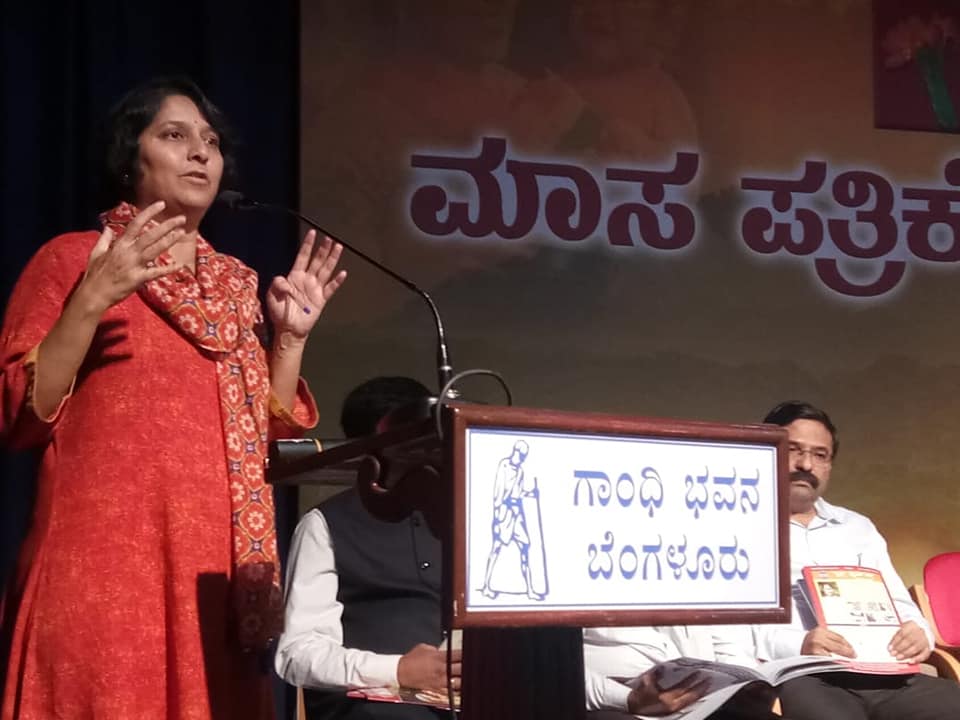
Shanthala Damle
The early days
Raised in Bengaluru, Shanthala’s father worked at the iconic HMT as an electrician in the machine tools division. “It was a middle-class upbringing,” she says, but a happy one nonetheless, with all the freedoms that come with urban life. But thing changed when she was nine as her family moved to Chikkabanavara, where she spent one year. “I grew up in a Brahmin household and was aware of things like caste, but you don’t really encounter those things in a city. Not like you would in a small village.”
For the first time, Shanthala came face-to-face with rural India’s deeply divided social fabric. She returned to Bengaluru and went to study at the HMT School, where company employees could educate their kids. “But that one year stayed with me.” At home, she was the eldest of four and often wondered if the emphasis placed on boys had had any role to play in her family’s choices. Even growing up, she was never given to accepting the status quo – not without asking questions, at least.
Moving to Davanagere at 17 for her engineering degree was another bold decision for the time. She was one of the very few girls, and being an outsider made her a rarer quantity. Even so, she spoke out against the injustice and corruption that took place, unquestioned, before her eyes – lecturers collecting salaries but refusing to come to class for instance. Shanthala attempted to speak up but was quickly subdued – nobody wanted to risk their futures over an act of rebellion.
When Shanthala returned to Bengaluru, the IT boom was just beginning. She found a job but longed to go abroad and applied for a H1B visa. Despite numerous interviews, no offers came her way. “One agent was kind enough to tell me why – they were all afraid that being a young woman, my parents would ask me to get married and forbid me from going, which would mean a wasted effort for the agent.” Shanthala says. It was a call that happened to be made entirely by the agent, as employers in the United States placed no such restrictions on women applying for work visas. “I said I wasn’t going to get married, which was my stand at the time and so, he helped me get the H1B visa.” Again, every decision meant pushing the envelope, of peeling back layers of entrenched inequality and discrimination so hard to discern it went unnoticed.
Living in the USA
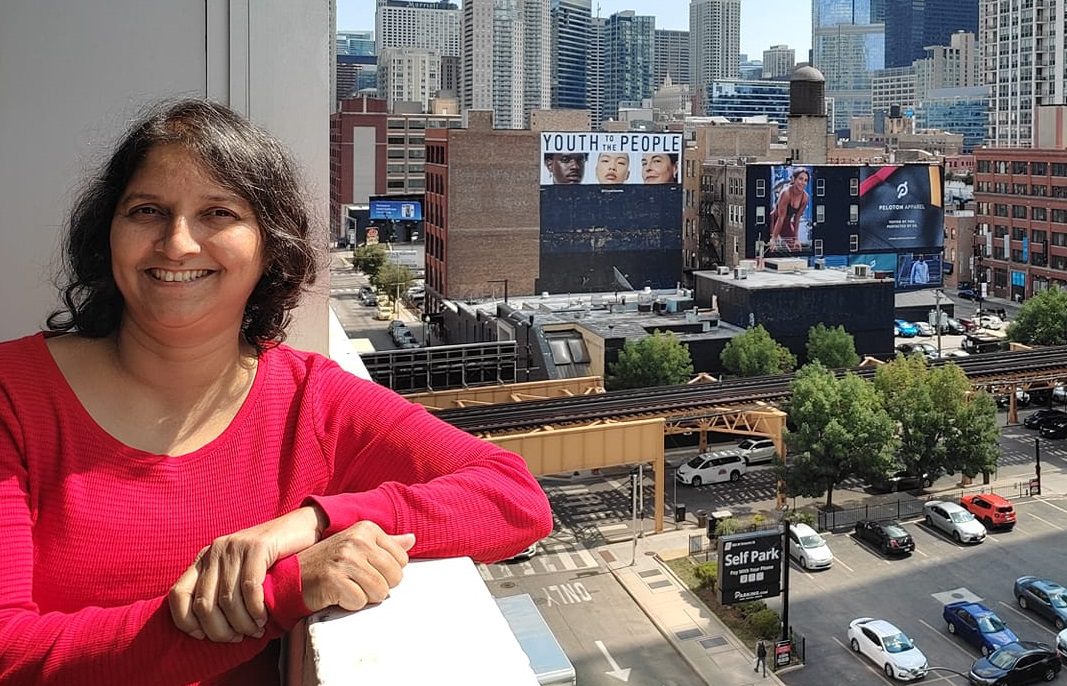
Landing in Washington, a thriving hotbed of diversity, Shanthala didn’t just find a new world. She found the chance to see the world with new eyes. Everything seemed simple – “Soon after I found a job, I was able to get loans, first for a car and then a house. All the processes were so easy and straightforward, I didn’t have to pay any bribes!” Even in the less developed neighbourhoods, people had the basics. Their houses had heating and a fridge and they could get unemployment benefits for six months. I’m not going to say that the US is perfect in every way. But government processes are easier. And there is something for everyone. No matter how little a person has, they aren’t going to starve.”
She did, however, have cause to recall what her agent had told her back in India. Mingling with the diaspora, she met many women who were unhappy and dejected. Highly educated, several had quit good jobs back home to join their spouses in America on H4 visas. “They were class toppers and had done well in India. In the US, they couldn’t work legally on H4 visas – many women would go into a depression.”
A turning point
“All this made me want to examine the difference between different political systems,” Shanthala says. She read extensively – the history of America – their freedom struggle, the civil rights movement and women’s fight for suffrage, which they received in 1921. “Luckily, our Constitution had been written by Dr Ambedkar, a man who understood inequality and independent India came into being giving women equal rights to vote. I wondered, if it hadn’t been for him, would we still be fighting for voting rights today?”
By the time she signed up for an MBA programme at Virginia Tech, Shanthala was aware she wanted to return home and join politics. “I wrote it in my application essay,” she smiles. She had just met the man she would go on to marry and recalls asking him to proofread her essay, also in part so he would know that she meant to return to India. “If he didn’t want that too, I wouldn’t have proceeded with our relationship.”
Shanthala was, however, keen to study in the USA and after her MBA, worked for three years as an Application Development Manager, gaining experience in managing teams. At the university, she found a vast chasm between what she had known in India and the system that existed in America. Indian and Chinese students were academically excellent, handing in flawless written assignments and acing the theory sections. They would, however, cower in class, reluctant to speak up and participate. “I had to learn to speak in public, to build on others’ ideas. In India, we like to start with ‘I disagree’, but in America, they go about things differently. It’s a lesson I continue to apply in my life today.”
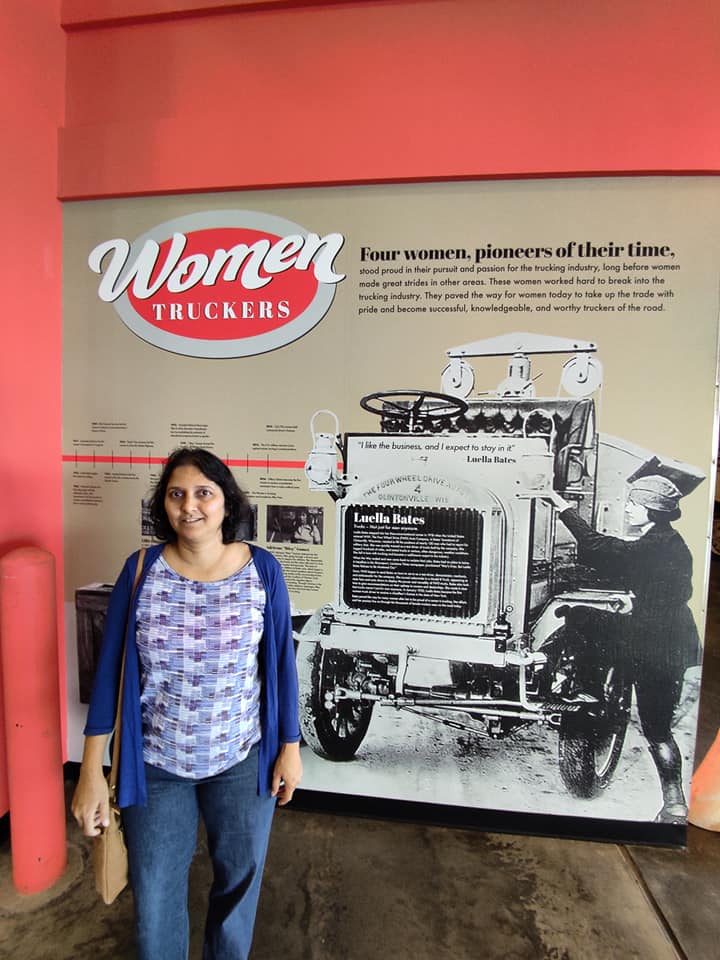
The journey back home
If all of her decisions so far had pushed the envelope, quitting a job in the US to return home and be in politics was outright preposterous – to those around her, at least. In the US, she would meet up with Indian friends over the weekends, who would spend hours “ranting about how horrible India is.” It troubled her. “It’s all very well to talk but who will change things? I wanted to bring about that shift and as far as I was concerned, every change is political.”
During the final year of her stay in America, Shanthala joined the office of Krystal Ball, a Democratic nominee who chose to contest boldly from Virginia’s 1st congressional district, a historically Republican bastion. Intrigued by her story, Krystal allowed Shanthala to experience the gamut of processes that comprise a campaign, from answering phone calls and handing out leaflets to accompanying her as she attended house meetings and working with the campaign management team.
Finding a foothold in politics
Shanthala arrived in India in 2010, at the age of 37. Drawn to the classical liberal ideals of JP Narayan, she joined the Loksatta Party in Bengaluru and threw her weight behind NASA-scientist turned urbanist and social technologist Ashwin Mahesh as he contested for the upper house election in 2012. Although that didn’t result in a Legislative Council seat, the effort was commendable, with the Bangalore Mirror noting at the time, “If every one of the voters Mr Mahesh enrolled for voting had turned up to cast their ballot on election day, he would have won by a thumping majority.” For Shanthala herself, it was a lesson in creating an election campaign on ground, of helping to build a campaign from scratch. Meanwhile, in May 2013, she contested as a Loksatta party candidate for the assembly elections in Karnataka, receiving 9000 votes from her constituency in Basavanagudi, Bengaluru. Soon after, she met Arvind Kejriwal, who even invited her to Delhi to join his AAP campaign for the Delhi assembly elections – she didn’t.
On February 1, 2014, Shanthala officially joined the Aam Aadmi Party. Arvind Kejriwal, who had led the party to a historic win in Delhi and was Chief Minister, resigned a fortnight later when the Jan Lokpal Bill failed to garner a majority in the assembly. “It was a bittersweet time – President’s Rule was declared in Delhi and when the general election happened later that year, we lost everywhere apart from four seats in Punjab. But then, AAP had pulled off something tremendous, becoming a national name within a year or two of its formation.”
She has risen steadily up the ranks since then and is currently the Karnataka State Secretary. Today, her days are spent canvassing through Mahalakshmi Layout, where she hopes to contest the upcoming Legislative Assembly elections next year.
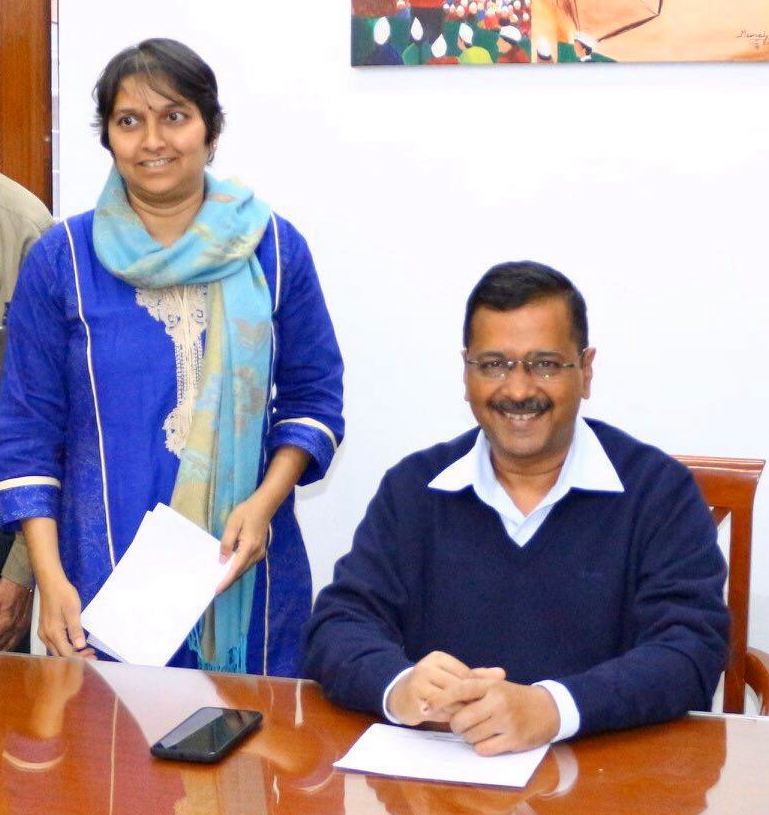
With Delhi CM Arvind Kejriwal
Avalahejje – for the rights of women
In 2015, when she went in for what she thought was a routine medical check-up, Shanthala was diagnosed with late-stage ovarian cancer. Months of rigorous treatment followed, “I was 42 at the time and my body was able to handle aggressive treatment,” she recalls. After she went into remission, she would wonder everyday if a relapse would occur. “Then I thought to myself, what if it doesn’t re-occur? I would have given up a job in the US to be in politics but what would I have actually accomplished?” And so, in 2017, she leaned into another cause she held dear – gender equality, founding Avalahejje. Over the years, she had watched women struggle, from being unable to get work visas to join their spouses abroad to rejecting promotions so they won’t earn more than their partners.
Before the pandemic, Avalahejje’s model involved bringing successful women to address girls in rural and less developed areas. Their programmes include conducting workshops in colleges, annual festival and documenting video interviews of women who have carved themselves a place in society. She’s clear about not wanting to be an activist or running an NGO, aiming instead for self-sustaining social entrepreneurship models to facilitate a change that “seeps in naturally.” “All I want to see is girls being able to make their own decisions without fear and to reclaim some of the space that is rightfully theirs.”



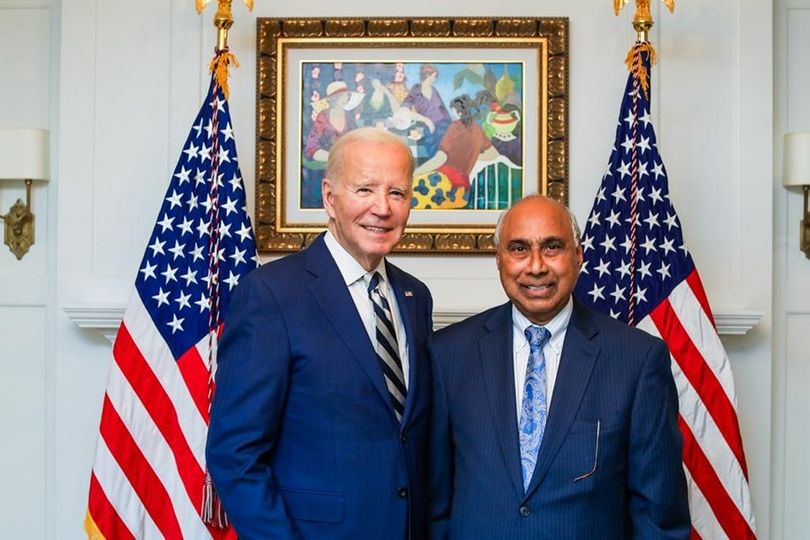 Frank Islam with the US President Joe Biden[/caption]
Frank Islam with the US President Joe Biden[/caption]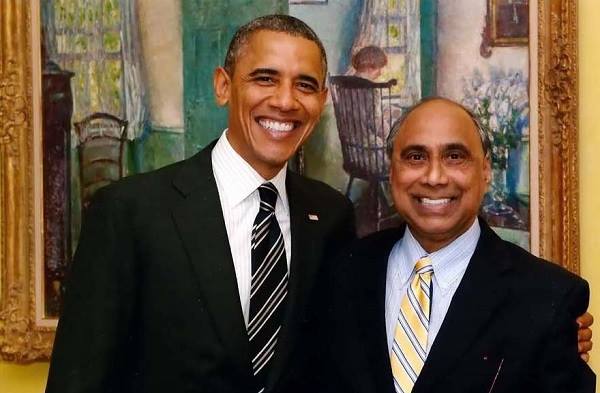 Frank Islam with Barack Obama[/caption]
Frank Islam with Barack Obama[/caption] Frank Islam's mansion, Norton Manor[/caption]
Frank Islam's mansion, Norton Manor[/caption]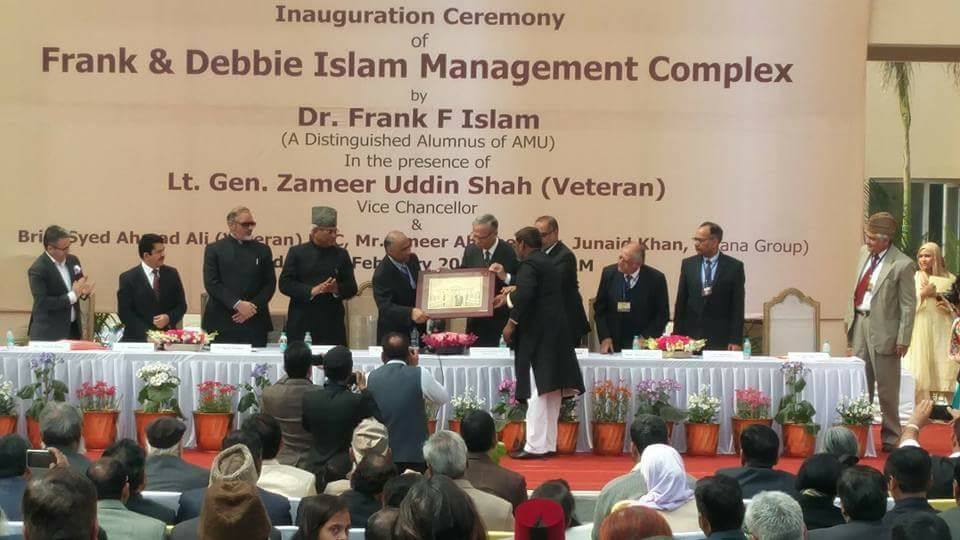 Frank Islam at the inauguration ceremony of the Frank & Debbie Islam Management Complex[/caption]
Frank Islam at the inauguration ceremony of the Frank & Debbie Islam Management Complex[/caption]
 Dr Zulekha Daud with gynaecologists and obstetricians of UAE[/caption]
Dr Zulekha Daud with gynaecologists and obstetricians of UAE[/caption]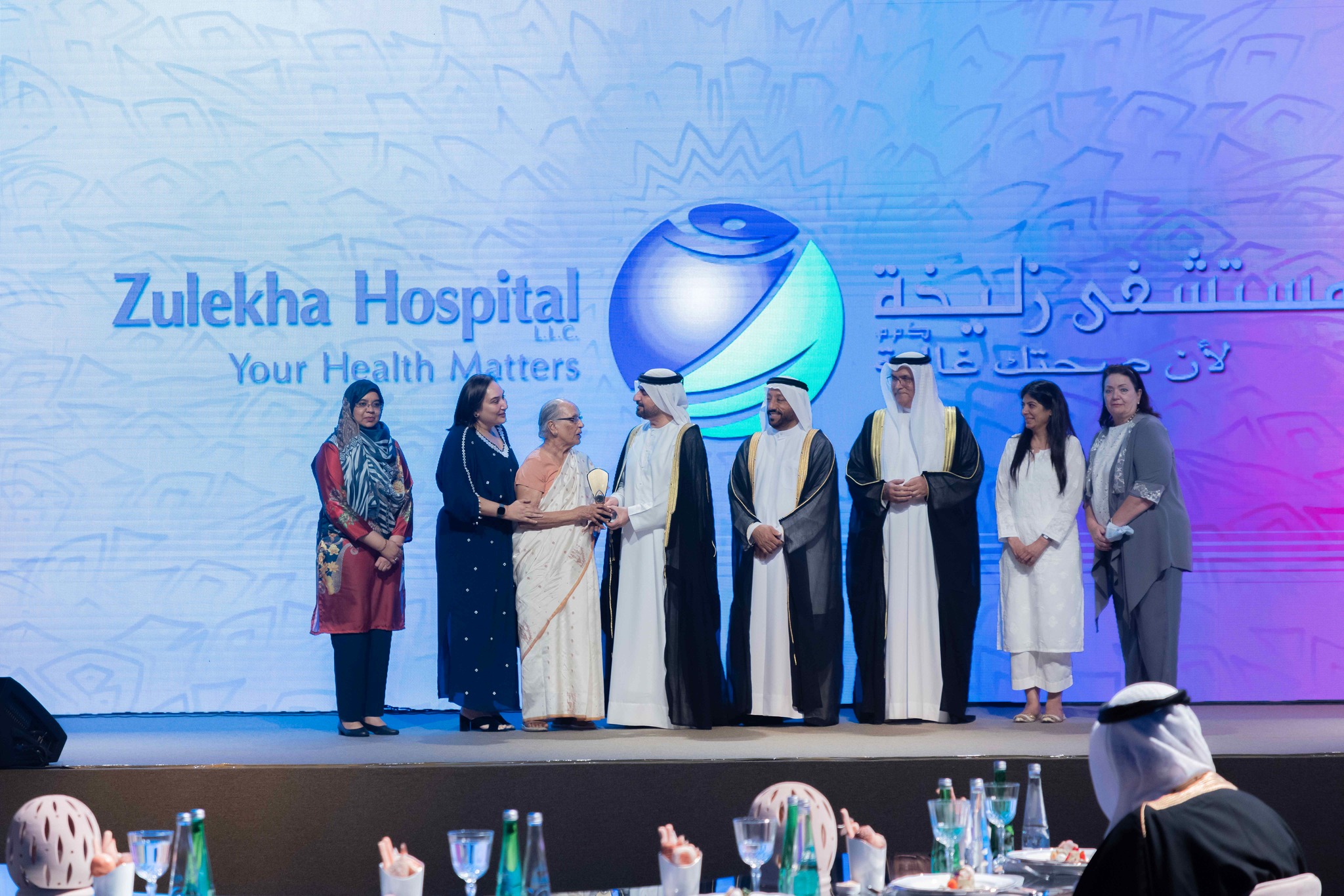 Dr Zulekha Daud received Sharjah Excellence Award on behalf of Zulekha Hospital on 1st March 2023 by the deputy ruler of Sharjah[/caption]
Dr Zulekha Daud received Sharjah Excellence Award on behalf of Zulekha Hospital on 1st March 2023 by the deputy ruler of Sharjah[/caption] Dr Zulekha Daud received Pravasi Bharatiya Samman in 2019[/caption]
Dr Zulekha Daud received Pravasi Bharatiya Samman in 2019[/caption]
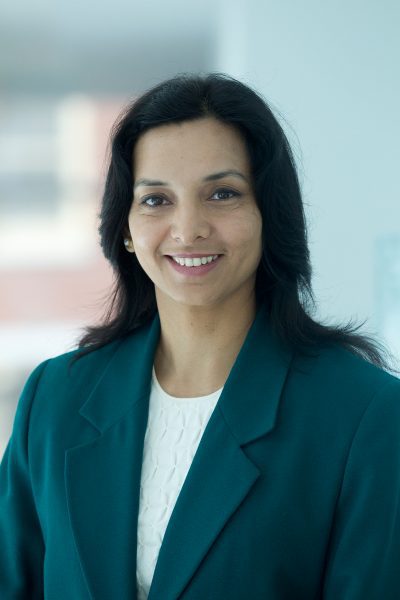
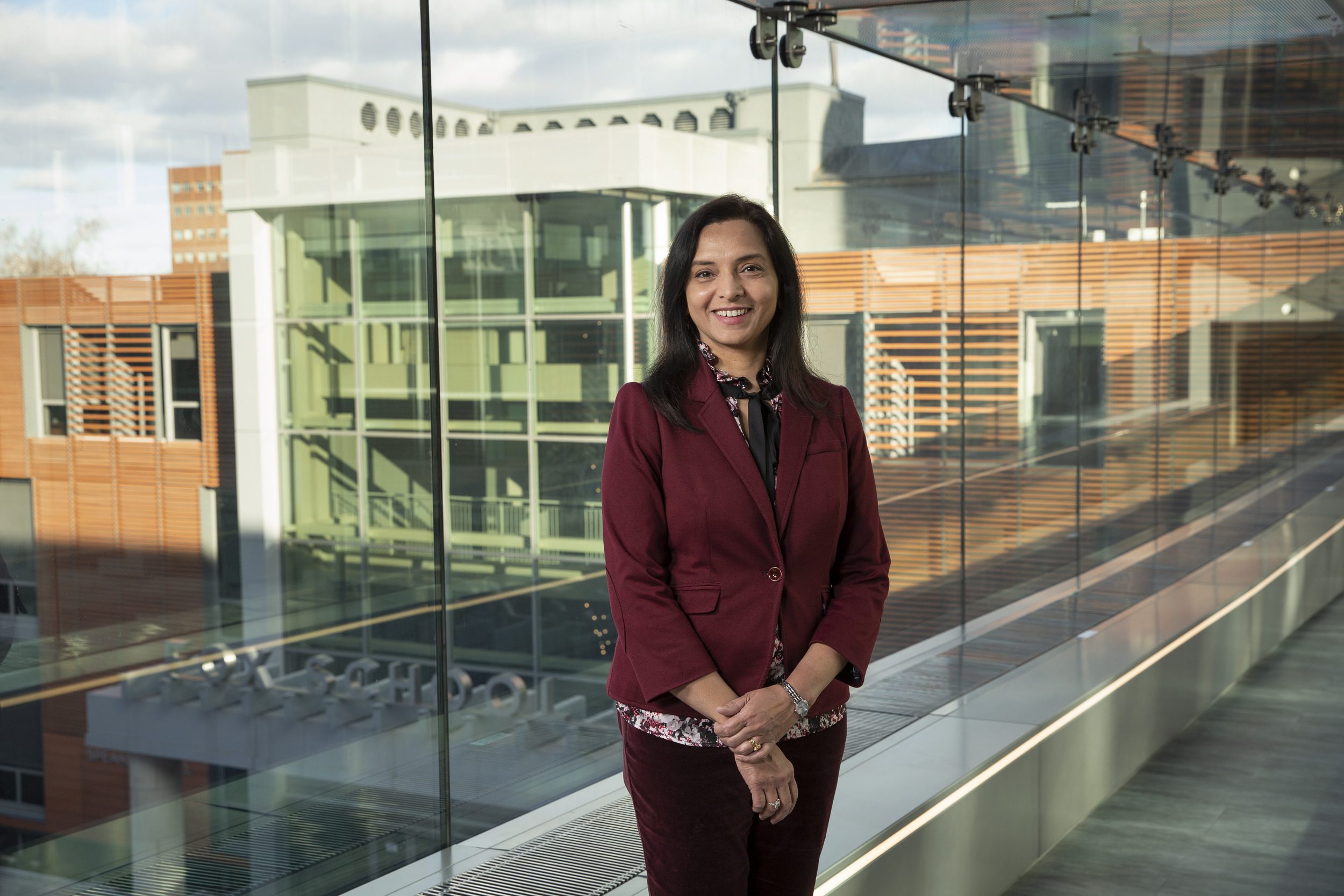
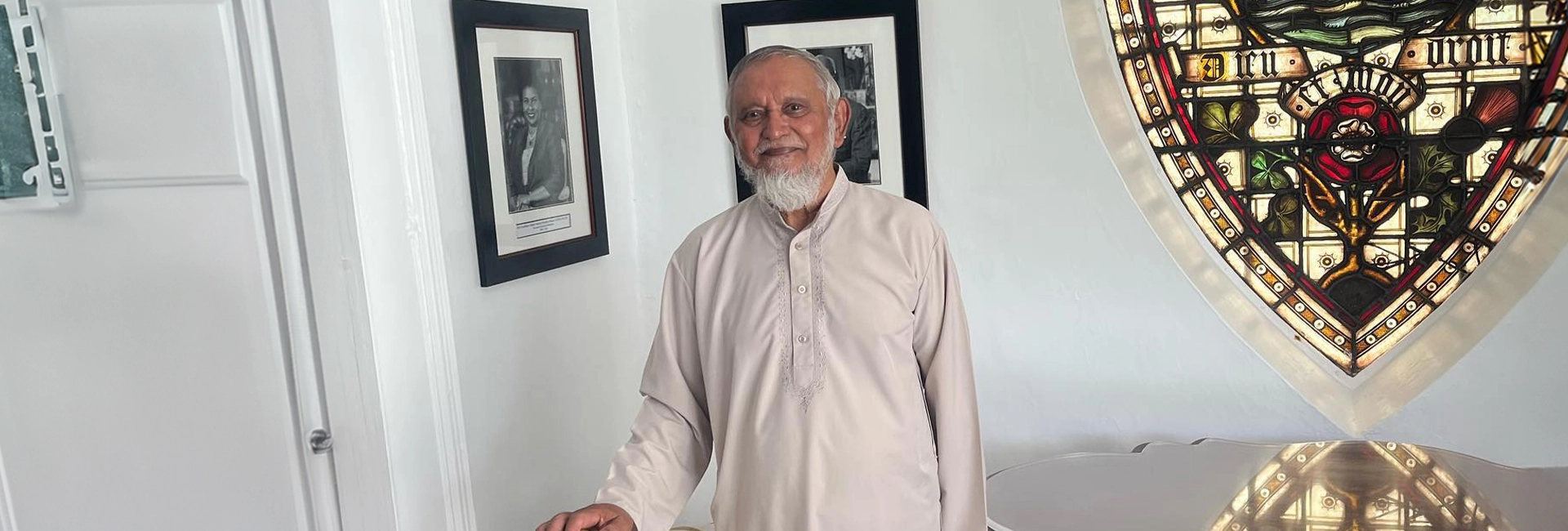
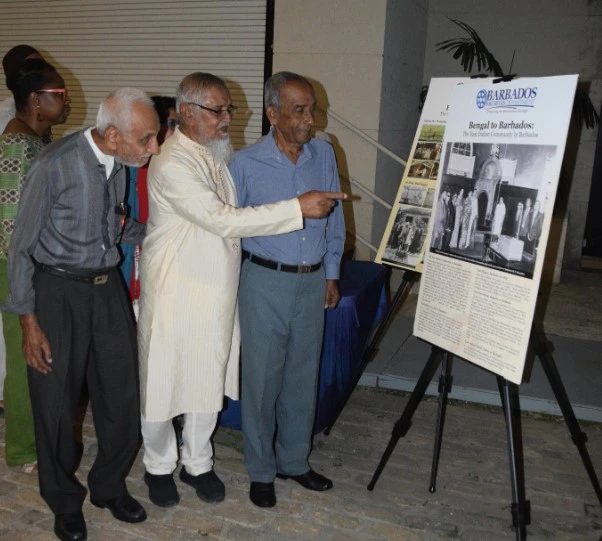 Sabir Nakhuda (centre) with Indian-origin people during the launch of Bengal to Barbados Foundation and digital project[/caption]
Sabir Nakhuda (centre) with Indian-origin people during the launch of Bengal to Barbados Foundation and digital project[/caption]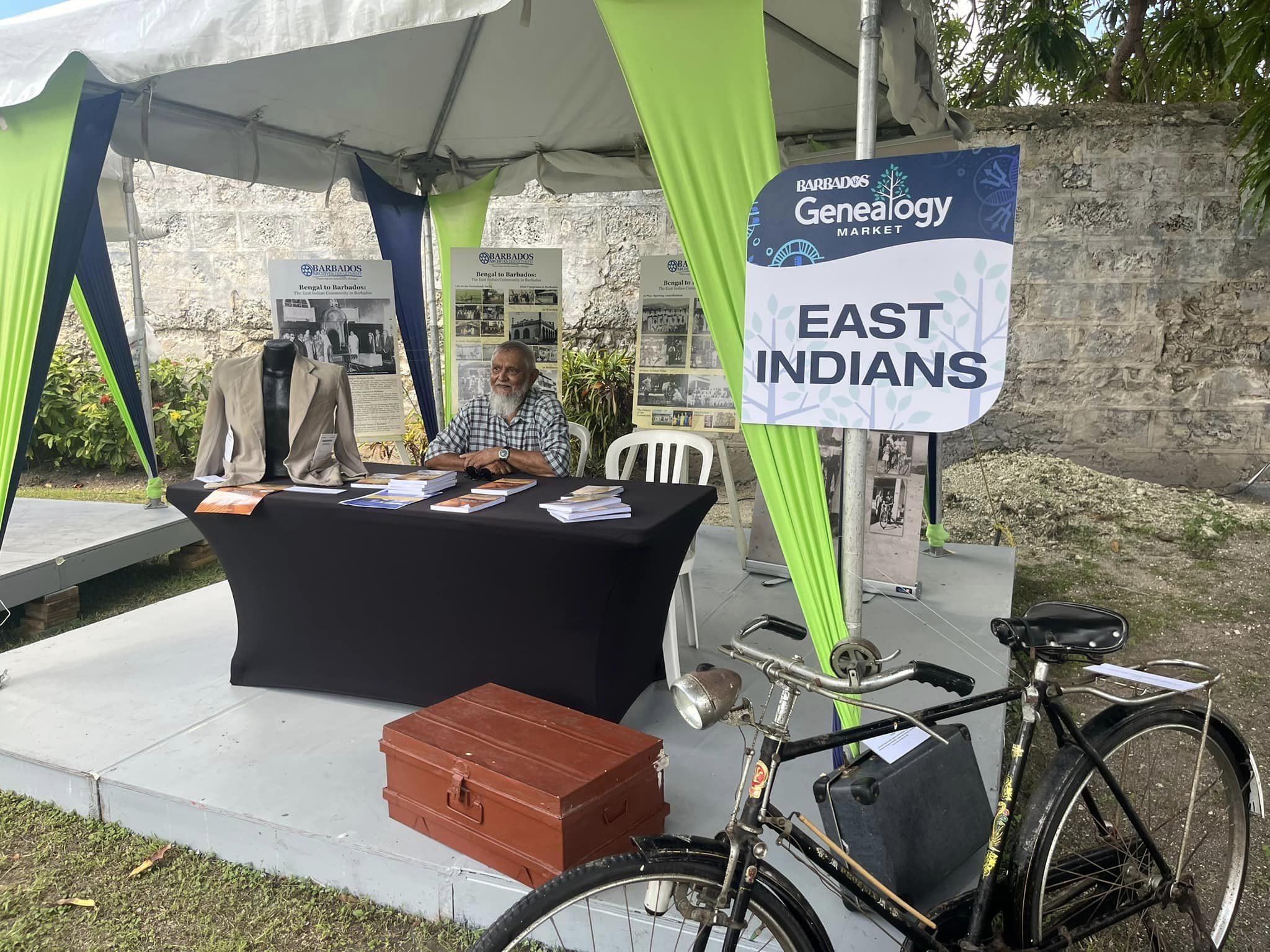 Sabir Nakhuda at the 2024 Genealogy Market, Barbados[/caption]
Sabir Nakhuda at the 2024 Genealogy Market, Barbados[/caption]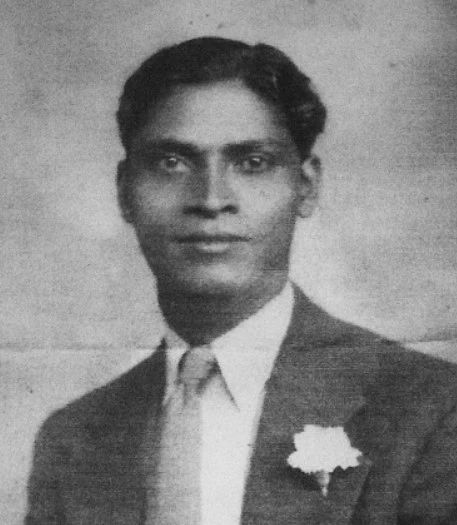
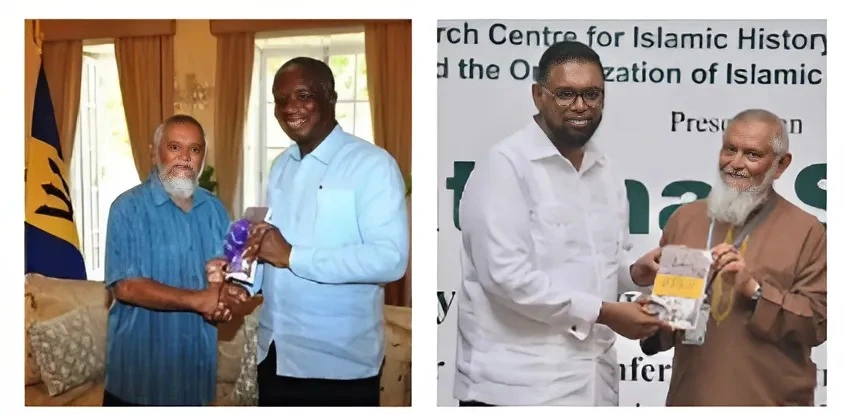 Sabir Nakhuda presented his book to Barbados PM Freundel Stuart in 2013 and President of Guyana, Mohammed Irfan Ali in 2023[/caption]
Sabir Nakhuda presented his book to Barbados PM Freundel Stuart in 2013 and President of Guyana, Mohammed Irfan Ali in 2023[/caption]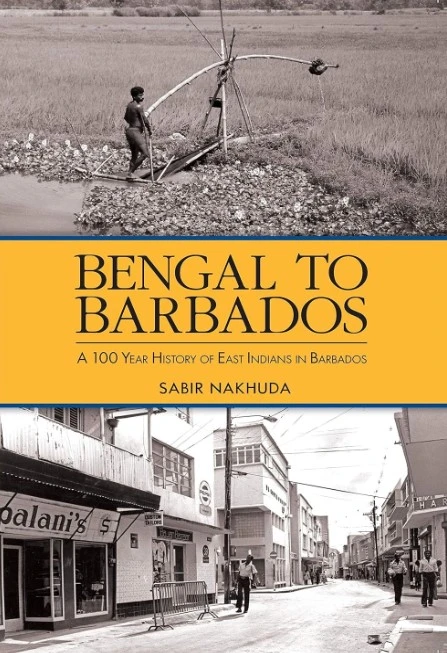 Cover Image of Sabir Nakhuda's book[/caption]
Cover Image of Sabir Nakhuda's book[/caption]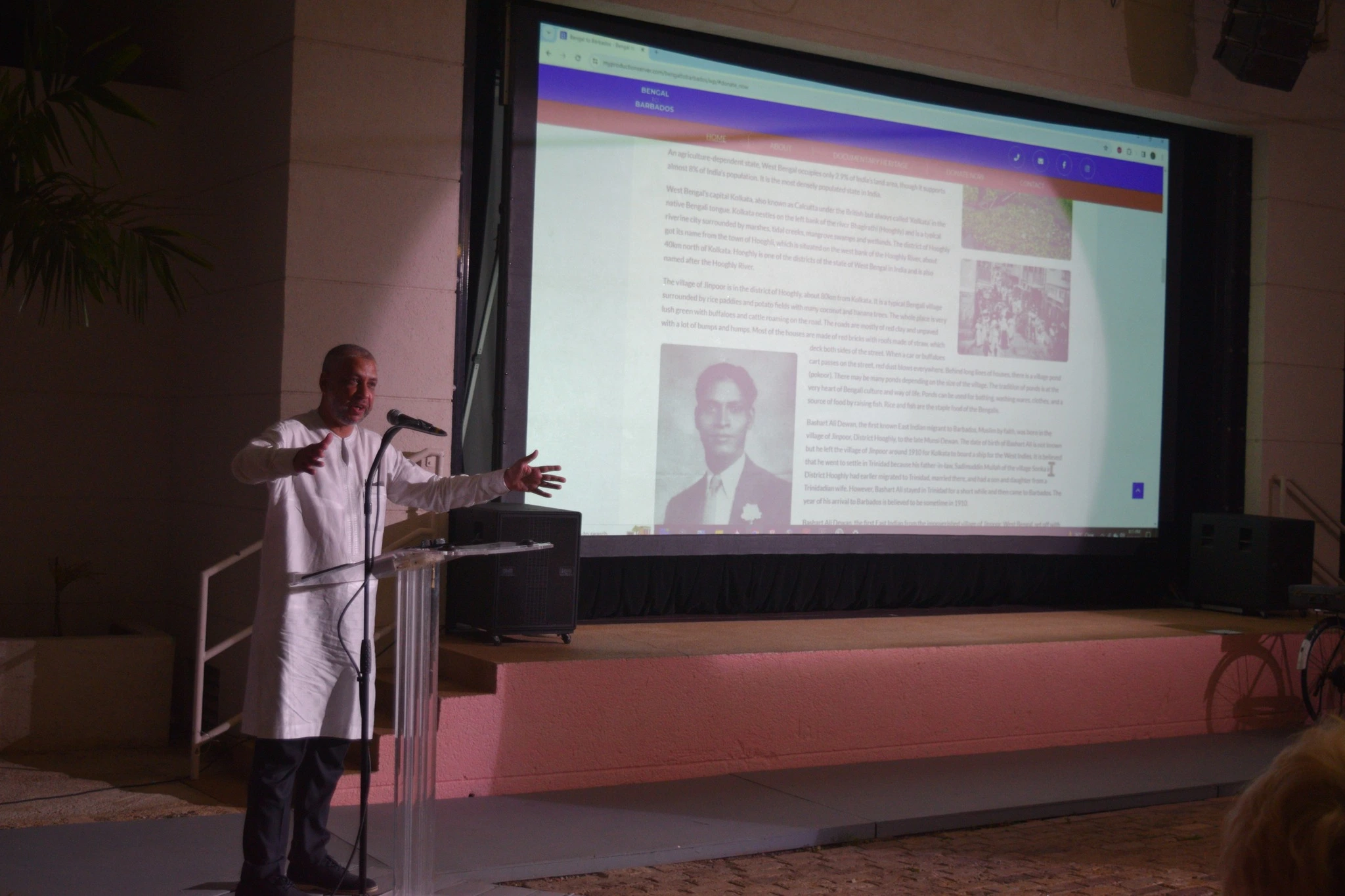 Suleiman Bulbulia during the launch of Bengal to Barbados Foundation and digital project[/caption]
Suleiman Bulbulia during the launch of Bengal to Barbados Foundation and digital project[/caption]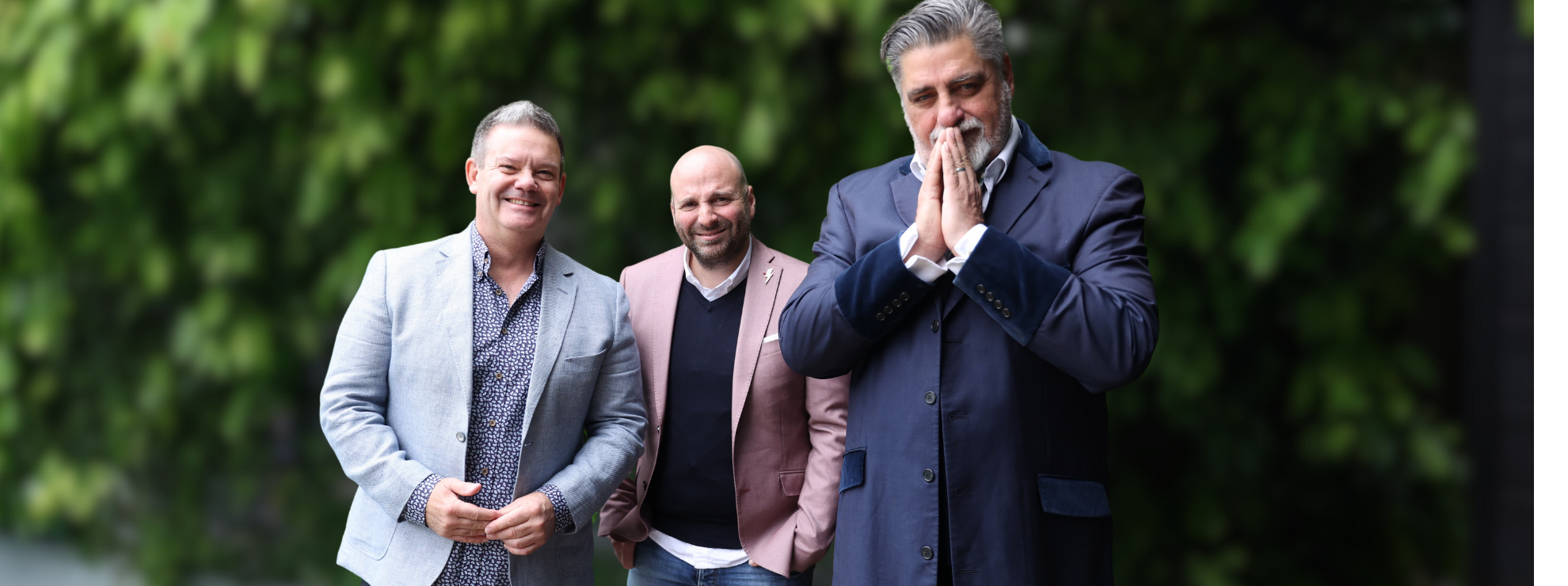
 The Masterchef Australia crew[/caption]
The Masterchef Australia crew[/caption]
An inspiring story of an ordinary next-door girl with extra ordinary conviction and courage to follow through in realizing her dreams. May she achieve electoral and other kinds of success that will benefit Indians from all walks of life.